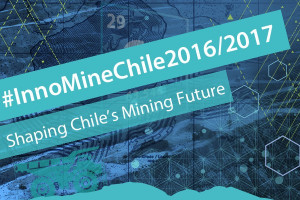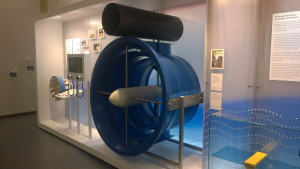Category: News
Off-grid energy for rural development in Latin America and the Caribbean: Closing workshop

The workshop will bring together government representatives and key stakeholders to discuss the role of renewable energy for rural development of off-grid communities, reflect on existing challenges and to formulate policy recommendations for moving forward. Workshop topics to be discussed include: renewable energy for productive use and provision of social services; lessons for sustainability; reaching “the last mile”; an integrated approach for the development of smart villages. The event will take place on May 3 in Panama City, Panama, and will be preceded by a field visit to a rural energy project on May 2. Smart Villages aims to facilitate the analysis and exchange of knowledge between the public sector, non-governmental organizations and the private sector, based on experiences in the field of rural electrification through sustainable energy sources. A key objective is to explore the opportunities and challenges for rural energy access for off-grid communities in developing countries.
Smart Hydro Power is part of the InnoMine Chile 2016/2017
 Innovative multi- and interdisciplinary solutions for tomorrow’s mining in Chile
Innovative multi- and interdisciplinary solutions for tomorrow’s mining in Chile
InnoMine Chile is the new initiative as constituent part of the collaborative project „International Research Marketing“ for the period of 2016/2017 powered by Fraunhofer-Gesellschaft. The initiative aims to link the Chilean mining sector with the German high-tech and innovation strategy.
The SMART turbine is part of the special exhibition at Deutsches Museum from 15.02.2017 to the 19.08.2018

A major challenge of our time is to find clean, economically viable and reliable ways of providing energy.
With the special exhibition energie.wenden, the Deutsches Museum is addressing this global issue. The exhibition explains how energy is generated, stored and distributed, as well as energy requirements and utilization, and places these topics in an historical and global context. Exhibits in the 1000 square meter space include originals, models, demonstrations, media stations with energy-related content, and also presents the stakeholders in the world of energy. The energie.wenden exhibition is not concerned only with electric power. It also examines heat, mobility and manufacturing, and focuses on the many possible approaches to a conscious energy transition and challenges visitors to make that transition a reality.
Generating opportunities through clean-energy access in rural areas of India
The most cost efficient solutions for decentralized electrification are designed by combining photovoltaic with river or canal turbines in hybrid systems. Since the potential for small hydropower generation in India is large, these solutions would serve a large portion of the population, who still have no access to electricity.
Smart Hydro Power (SHP) will present its SMART Hybrid System at Intersolar India this year – inside the German Pavilion. India is facing an energy revolution. Despite broad grid coverage, electricity supply in remote areas remains unreliable. For the future, the government is setting a favorable political scenario by introducing solutions for decentralized electrification based on renewable energies, such as photovoltaic (PV), small wind, and explicitly kinetic hydropower.
SHP has the advantage of realizing its systems in rural areas, without the requirement for any kind of infrastructure, suitable for running canals, rivers and streams, which inhabit a large portion of India’s typography. At the distribution part of this system, integrated load management introduces an auxiliary productive load – a water purification plant – that utilizes all excess energy and stabilizes the micro grid with variable operation. Through this feature, additional value is brought to the lifestyle of people residing in these communities.
November, the 19th – 10am Dr. Karl Kolmsee will discuss “Micro PV-Hydro-Hybrid Plants for Rural Electrification – Making Electricity Productive” – part of the “India’s Off-Grid PV Market” session at the Intersolar Mumbai 2015.
Besides that, Smart Hydro Power will also ehxibit its solutions at the booth #1620 in the German pavillon.
About Intersolar India: INDIA’S LARGEST EXHIBITION AND CONFERENCE FOR THE SOLAR INDUSTRY. IT TAKES PLACE AT THE BOMBAY EXHIBITION CENTRE (BEC) IN MUMBAI FROM NOVEMBER 18-20, 2015.
The event’s exhibition and conference both focus on the areas of photovoltaics, PV production technologies, energy storage systems and solar thermal technologies. Since being founded, Intersolar has become the most important industry platform for manufacturers, suppliers, distributors, service providers and partners of the solar industry.
Can electric mobility be applied off-grid?
Last Monday, September 28th, German professionals from the automotive and energy sector came together with South American off-grid experts for a rich and intriguing discussion on e-mobility in developed and developing countries.
The tour started with a group of visitors, who were guided through the Auer-Mühlbach in the southwest area of Munich, where a complete off-grid electrific system was set up for demonstration. By the water, one could control an electric boat motor Cruise 4.0 from Torqueedo, manufacture of electric motors from the Lake Starnberg. On the shore, a grey block drew attention, requiring some explanation from the engineers: “This is the battery bank of the motor and it is charged by renewables, here we are 100% off-grid.”
Besides this motor, there were e-bikes to ride and a prototype electric car from the Technische Universität München integrated in the off-grid system. At a traditional location of Munich, visitors experienced how e-mobility can work off-grid, the way it usually works in remote areas such as the Amazonian rain forest.
Innovative concepts of electric mobility connected to smart micro grids in Germany were shared by Christian Kandler, Institute for Energy Economy and Application Technology (IfE in German), who showed the results of research supported by e-Mobilie, BMW Group, SMA, among others. According to this, building the charger stations off-grid is the most efficient way of decreasing the use of battery. In this same logic, José Jara from Tratural presented the first e-boat projects in Galapagos and Ecuador, which worked accordingly to the expectation, until they encountered some bureaucracy problems with the local government. The ambition of José Jara is now to improve the life quality in Cuenca, implementing a project with public e-bikes.
Behind this off-grid e-mobility day is the start-up also from Lake Starnberg, Smart Hydro Power that is working on an e-boat project with the municipality of Schondorf. The plan is to install renewable energy charging stations in the Colombian Amazon, using the water potential of the region though river turbines.
Visitors from different countries, institutions and industry sectors came to learn experience and discuss the various technologies and concepts. At the end of the evening, the discussion raised financial and cultural points of e-mobility. In regards to the adoption of the technology, Mrs. Le-Bris from Green City PROJEKT add: “E-mobility is something that you have to try in order to like it. Once you feel the joy of riding an e-bike, you will not exchange it for anything, especially if you reside in an uneven area.”
E-mobility Day: Technische Universität München and Smart Hydro Power open the doors of their workshop
Monday, September 28th from 4 to 6:30 pm, everyone interested in e-mobility can peek inside the workshop from Technischen Universität München and the Bavarian Start-up Smart Hydro Power. At the Krämer’schen Kunstmühle (Birkenleiten, 41 – Munich) experts will show and try out e-mobility technologies and its integration with distributed energy generation through renewable energy sources. As part of the exhibition, the public will get to know and experience e-boat motor, e-bike and much more.
Since e-mobility is not restricted to industrialized countries, new applications in remote areas will be discussed as well. To wrap up the day, Tratural, a partner company from Smart Hydro Power, will present and open for discussion the use of e-boats in Ecuador and Colombia.
You are welcome to come and have a good time.
SEPTEMBER 2015- BAYERN brings sustainable productive use to rural areas
Over the last five years the Smart Hydro Power (SHP) team has gathered experience of how people in remote areas all over the world live without or with very limited access to electricity. Based on this experience, we have designed rural electrification solutions packages, sourced by renewable energy and now the company is showcasing them “en casa” in Munich.
This September we welcome visitors to join and experience what electricity can provide to the lives of those who don’t have access to it. All activities will take place at Kraemer’sche Kunstmühle (Birkenleiten, 41 – München).
From water treatment to a small rural school, the company aims to show the approach of innovative engineering for energy access in developing countries. All displayed solutions focus on the productive use of energy, which is illustrated by a workshop, charging station, water filtration system, ice making and e-mobility. The energy sources for these solutions are solar panels from the company Aqua Soli and the hydro kinetic turbine from SHP.
Additionally, the Spanish company Trama TecnoAmbiental (TTA) will be at this exhibition with their energy meters for a demonstration of a pre-paid system installed in rural communities. This system is the most efficient and reliable way of managing distributed generation.
So far the installation has received visitors from Nigeria, Zambia and Indonesia. In the upcoming weeks, there will be more delegations from Asia and South America. During the last weeks of September workshops with the SHP team and partners are also planned. Anyone interested should get in contact with us to arrange a guided visit: juliana.baumgartl@smart-hydro.de ⁄ +49 (0) 8158 907 897 – 11
Trama TecnoAmbiental (TTA) is an international consulting and engineering company that specializes in distributed generation through renewable energy sources, energy management and efficiency, rural electrification, self-generation, integration of renewables in buildings, sustainable architecture, as well as, specialized training, education and technological development related to its activities.